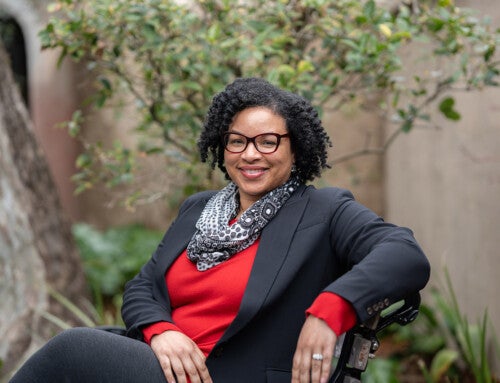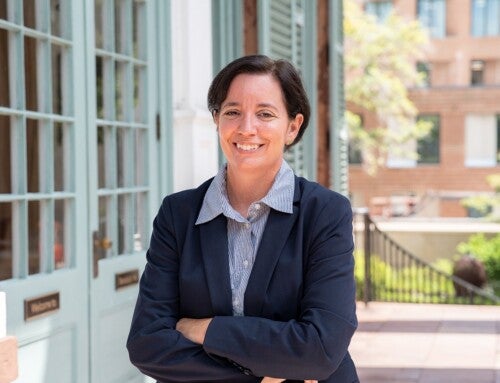Do you have an ongoing writing project or plans to initiate a new one? This is a question that Mark Del Mastro has been posing lately to his faculty colleagues at the College of Charleston. That’s because Del Mastro, the College’s associate provost for academic and international programs, manages a series of workshops known as the Faculty Writer’s Retreat.
Now in its 11th year, this series was originally conceived by the late English professor Conseula Francis and founded by Lynne Ford, associate vice president for the academic experience. The Faculty Writer’s Retreats are orchestrated several times each year to help professors and instructors focus on specific writing projects. Participants agree to work exclusively on their respective projects during the specified time, forsaking all other tasks, such as grading, checking emails or leaving for other meetings. In exchange for that commitment, they’re accorded a private room in the Marlene and Nathan Addlestone Library with an Aeron chair, white board and access to the internet and printing; a nearby common room where snacks and beverages are available; the assistance of a reference librarian; and the opportunity to share lunch with fellow participants on each day of the retreat.
“Each scholar has a preferred way to approach their writing,” says Del Mastro. “Some professors take refuge at home, others hunker down in their campus office, while some follow their own regimented schedules. The Writer’s Retreat,” he says, “reserves both space and time for faculty while reinforcing a commitment to avoid the incessant distractions of email and cell phones. Setting aside such a ‘protected’ space has proven invaluable for the research agendas of our faculty, which explains why many continue to return for multiple retreats.”
English professor Simon Lewis is one of those professors. He’s attended several retreats and thinks that they’re one of the best innovations that the College has ever enacted for faculty.
“I love the Faculty Writer’s Retreats,” Lewis says. “They’re inexpensive for the College, and you get to meet colleagues from other departments whose work you might otherwise not know about. So, the retreats gratify my innate inquisitiveness about what other people are up to.”
Regarding outcomes, he says that the retreats end up being very productive.
“I find it a great deal easier to do two, three or five days’ worth of writing without allowing myself to be distracted when I formally sign up for these retreats,” Lewis explains. “Dedicating that amount of my time independently to my own writing, I find incredibly difficult to do for some reason. One of the projects that I completed during a recent retreat was an essay that I’d been asked to ‘revise and resubmit’ quite some time earlier, but that I’d never found the time to finish. That essay is now due to be published in fall 2020 in Research in African Literatures.”
For the October 2021 retreat, participants have the option of participating for one or two days; for the December 2021 retreat, the options are three or two days. Participants sign in by 8:30 a.m. to begin their work, and each faculty member is expected to focus only on writing for at least six hours daily. Faculty are advised to arrive at the retreat with very specific writing tasks, whether conceptualizing and drafting a new manuscript or completing final revisions to a longstanding work. Selected participants must bring all materials needed for the writing project, including their laptop.
All instructional faculty members are welcome to apply, including adjunct faculty and full-time staff who also serve as adjuncts (provided your staff supervisor approves of your participation and consequent leave or absence from your regular duties). Preference will be given to faculty preparing for a major review (tenure or promotion) and new faculty establishing a writing program. If a faculty member has a collaborator on campus, both may apply separately, or one may apply and invite their collaborator to join them for a portion of the retreat.
The next retreat is scheduled for Dec. 14–17, 14–15 or 16–17, 2021. To apply, you must request permission from the Center for Excellence in Teaching and Learning by sending a detailed message to [email protected] or call 843.953.3377.
Feature photo by Startup Stock Photos from Pexels






